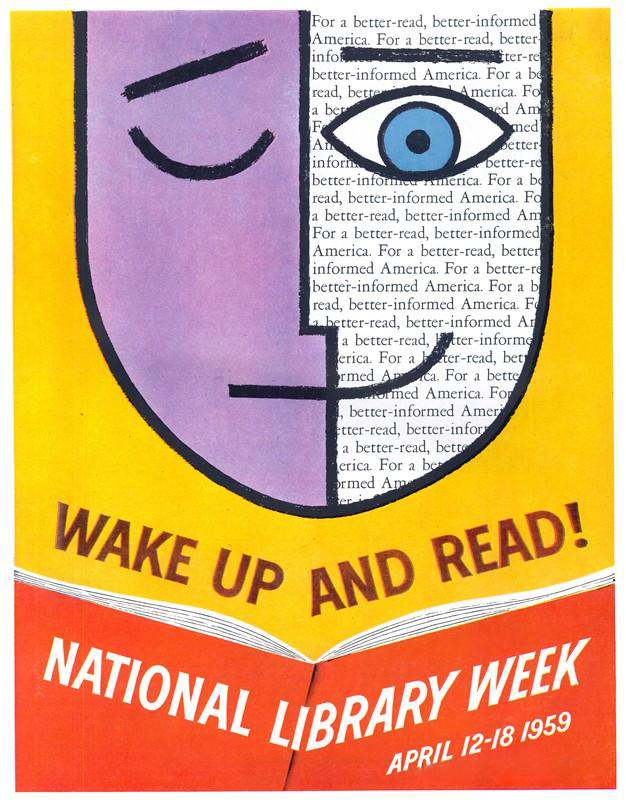Happy National Libraries Day
 ClickHelp Teamin Technical Communication on 4/16/2018 — 4 minute read
ClickHelp Teamin Technical Communication on 4/16/2018 — 4 minute read ClickHelp Teamin Technical Communication on 4/16/2018 — 4 minute read
ClickHelp Teamin Technical Communication on 4/16/2018 — 4 minute read

National Libraries Day is a national observance sponsored by the American Library Association and libraries across the USA each April. This year it takes place on April 16th. This annual event is the celebration of the contributions made by libraries and librarians to American society. During this day a wide range of activities are held like events, meetings with authors and competitions organized by universities, community groups, library vendors and service suppliers.
In the mid-1950s people were spending increasingly more time on television and radio, and less on reading. For that reason in 1954 the American Library Association (ALA) in partnership with the American Book Publishers founded National Book Committee, a nonprofit organization. Its purpose was to “encourage people to read in their increasing leisure time”, “improve incomes and health” and “develop strong and happy family life”.
In 1957, the National Book Committee developed a plan for its first National Library Week. The idea behind it was that once people were motivated to read more, they would visit and support libraries. Next year ALA and the Advertising Council opened the first National Library Week under the slogan “Wake Up and Read!”.

The National Library Week was celebrated again in 1959. It had been agreed to continue the annual celebration.
In celebration of National Libraries Day we’ve created a list of useful books about technical writing to improve your skills, help you grow as a professional and join the festival community.
Technical Writing: Process and Product (5th Edition), by Sharon J. Gerson and Steven M. Gerson
This full color 5th edition of Technical Writing: Process and Product guides readers through the entire writing process—prewriting, writing, and rewriting—developing an easy-to-use, step-by-step technique for writing the types of documents to encounter on the job. Written in a reader-friendly manner, it engages readers in the writing process and encourages hands-on application. Discussed topics include prewriting, writing, and rewriting in relation to ethics, audience identification, electronic communication, and the role of technical writing in the workplace. This book will suit the needs of those looking to utilize more effective written communication in their jobs.
In order to succeed in technical writing, you need a lot more than just strong writing skills. Technical Writing 101: A Real-World Guide to Planning and Writing Technical Content details the skills you need as a technical writer to create both printed and online content. This valuable reference describes the entire development process-planning, writing, visual design, editing, indexing, and production. It also provides tips on how to write in a manner that would allow to translate information easily into other languages.
You’ll learn about the importance of following templates and about how structured authoring environments based on Extensible Markup Language (XML) streamline the content development process. This edition features updated information on the Darwin Information Typing Architecture (DITA) standard for structured authoring, and explains the impact of Web 2.0 technologies – blogs, wikis, and forums – on technical communication.
The Insider’s Guide to Technical Writing, by Krista Van Laan
Every complex product needs to be explained to its users, and technical writers, also known as technical communicators, are the ones who do that job. A growing field, technical writing requires multiple skills, including an understanding of technology, writing ability, and great people skills.
Whether you’re thinking of becoming a technical writer, just starting out, or you’ve been working for a while and feel the need to take your skills to the next level, The Insider’s Guide to Technical Writing can help you be a successful technical writer and build a satisfying career.
Technical Editing (5th Edition), by Carolyn D. Rude
This market-leading text, which reflects recent changes in technology, workplace practices and the global marketplace, progresses from concepts and basic copyediting to comprehensive editing, management and production issues. The addition of Angela Eaton of Texas Tech University brings a fresh tone to her updates of content and pedagogy while retaining the authoritative voice of Carolyn Rude. Examples about editing websites are found throughout the text to support the increased role of online resources in every aspect of communication.
How To Write Usable User Documentation (2nd Edition), by Edmond H. Weiss
This popular handbook presents a step-by-step method for clearly explaining a product, system, or procedure. The easy-to-follow text – packed with examples and illustrations – explains the unique demands of this form of writing and shows how to set up the best user model. The book covers developing a modular outline and storyboard, generating the draft, revising, developing a formal usability test, and supporting and updating user documentation. Also included are a glossary of terms, a listing of books and periodicals for additional information, and an index.
As for us, we’ve also managed to lay the foundation of our own library! Recently the 1st edition of Technical Writer Career Guide became available for free download.
Whether you only consider becoming a technical writer and not sure where to start, or you already have a job and desire to become a professional, you may benefit from the gem tips and guidance, that we’ve gathered in one place.
This ebook covers a wide range of questions, from the history of technical writing in antiquity (yes, it’s that old!) to technical writing skills, modern tools, workflows and documentation design. See for yourself:
Download my Technical Writer Career Guide for free!.
Happy National Libraries Day!
ClickHelp Team
Author, host and deliver user documentation across platforms and devices
Get monthly digest on technical writing, UX and web design, overviews of useful free resources and much more.
"*" indicates required fields